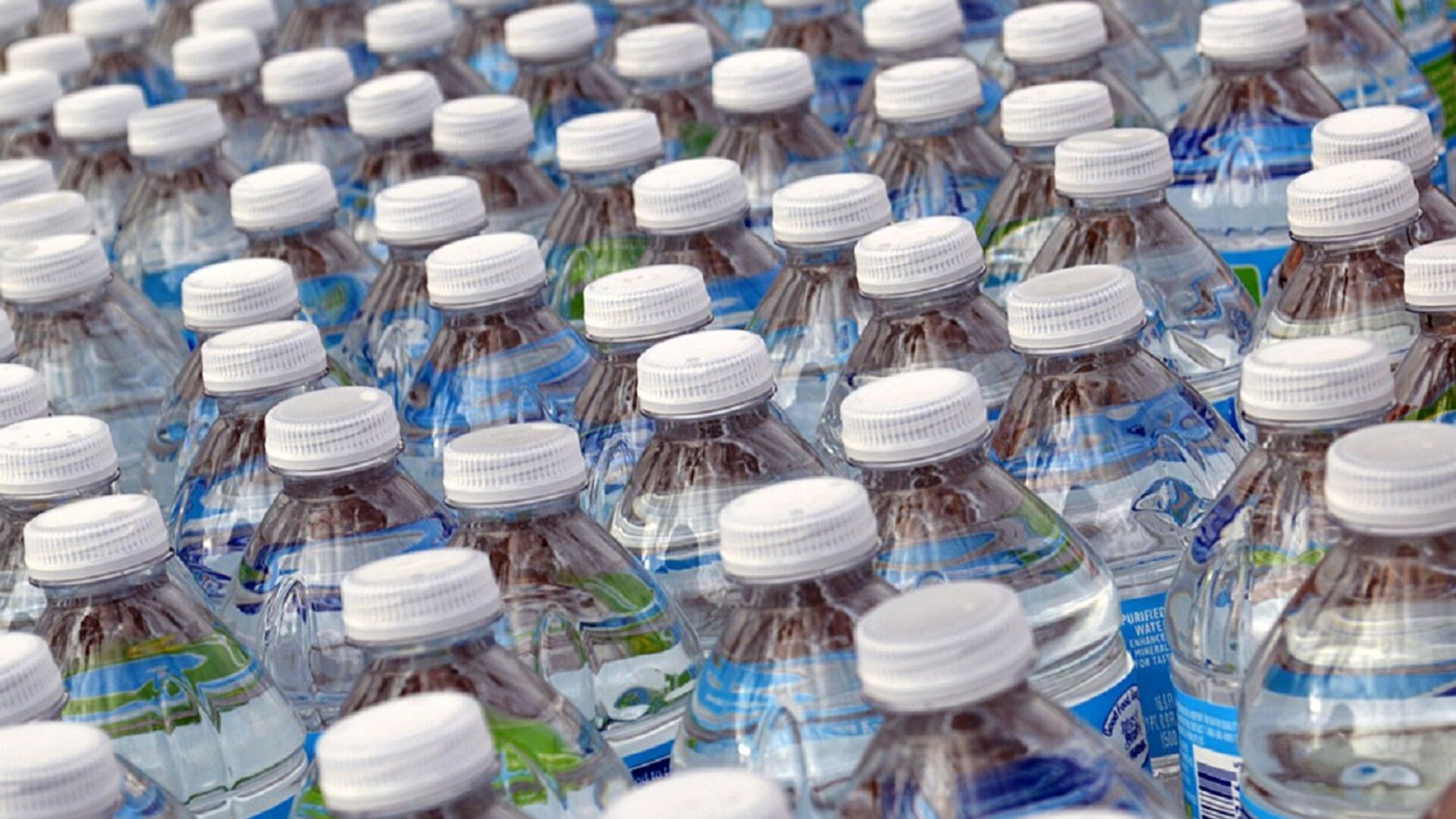https://sputnikglobe.com/20230326/philadelphia-residents-advised-to-drink-bottled-water-after-chemical-plant-spill-1108810369.html
Philadelphia Residents Advised to Drink Bottled Water After Chemical Plant Spill
Philadelphia Residents Advised to Drink Bottled Water After Chemical Plant Spill
Sputnik International
Philadelphia authorities have advised residents to opt for bottled water over tap water for drinking and cooking following a chemical spill in a tributary of the Delaware River.
2023-03-26T23:13+0000
2023-03-26T23:13+0000
2023-03-27T00:27+0000
americas
us
philadelphia
department of environmental protection
us coast guard
chemical plant
pipeline
water pollution
contamination
https://cdn1.img.sputnikglobe.com/img/103386/88/1033868802_0:125:1333:875_1920x0_80_0_0_e7acac80bc0d2844b937ac863b022478.jpg
Late last Friday, Trinseo PLC, a chemical plant, suffered a pipeline rupture, releasing over 8,000 gallons of a water-soluble acrylic polymer solution into Otter Creek, which feeds the Delaware River, the primary source of drinking water for approximately 14 million people across four states.Michael Carroll, Philadelphia’s deputy managing director for transportation, infrastructure and sustainability, said at a news conference on Sunday that no contaminants have been detected in the water system thus far.He added that traces of chemicals may be present in the tap water, and suggested that a low level of exposure would not pose a threat to human health, such as skin exposure, or fire hazards, and that bathing or washing dishes would not present a concern.The Philadelphia Water has also released a map of districts, which could be exposed to contamination.Following the Philadelphia spill, many residents have expressed concern and are resorting to purchasing bottled water.The Trinseo plant’s vice president, Tim Thomas, compared the spilled material to water-based acrylic paint.The Pennsylvania Department of Environmental Protection confirmed that water samples taken at the site had not uncovered any contaminants. Still, the US Coast Guard recommended that people avoid the cleanup site. However, the spilled chemicals, butyl acrylate and ethyl acrylate, both odoriferous liquids used in making adhesives, caulks, and paints, can cause breathing difficulties and eye and skin irritation. Butyl acrylate was one of the hazardous substances in the February Ohio train derailment that caused a toxic chemical fire.
americas
philadelphia
Sputnik International
feedback@sputniknews.com
+74956456601
MIA „Rossiya Segodnya“
2023
News
en_EN
Sputnik International
feedback@sputniknews.com
+74956456601
MIA „Rossiya Segodnya“
Sputnik International
feedback@sputniknews.com
+74956456601
MIA „Rossiya Segodnya“
philadelphia, trinseo plc spill, philadelphia water spill contamination chemicals, philadelphia water, water pollution, us philadelphia ecology, what happened in delaware , otter creek delaware river chemicals, is it safe to drink tap water in delaware, philadelphia residents
philadelphia, trinseo plc spill, philadelphia water spill contamination chemicals, philadelphia water, water pollution, us philadelphia ecology, what happened in delaware , otter creek delaware river chemicals, is it safe to drink tap water in delaware, philadelphia residents
Philadelphia Residents Advised to Drink Bottled Water After Chemical Plant Spill
23:13 GMT 26.03.2023 (Updated: 00:27 GMT 27.03.2023) Philadelphia authorities have advised residents to opt for bottled water over tap water for drinking and cooking following a chemical spill in a tributary of the Delaware River.
Late last Friday, Trinseo PLC, a chemical plant, suffered a pipeline rupture, releasing over 8,000 gallons of a water-soluble acrylic polymer solution into Otter Creek, which feeds the Delaware River, the primary source of drinking water for approximately 14 million people across four states.
Michael Carroll, Philadelphia’s deputy managing director for transportation, infrastructure and sustainability, said at a news conference on Sunday that no contaminants have been detected in the water system thus far.
He added that traces of chemicals may be present in the tap water, and suggested that a low level of exposure would not pose a threat to human health, such as skin exposure, or fire hazards, and that bathing or washing dishes would not present a concern.
The Philadelphia Water has also released a map of districts, which could be exposed to contamination.
Following the Philadelphia spill, many residents have expressed concern and are resorting to purchasing bottled water.
The Trinseo plant’s vice president, Tim Thomas, compared the spilled material to water-based acrylic paint.
"It’s like the material you find in paint," said Thomas. "It’s your typical acrylic paint you have in your house. That’s what really this material is, in a water base."
The Pennsylvania Department of Environmental Protection confirmed that water samples taken at the site had not uncovered any contaminants. Still, the US Coast Guard recommended that people avoid the cleanup site.
However, the spilled chemicals, butyl acrylate and ethyl acrylate, both odoriferous liquids used in making adhesives, caulks, and paints, can cause breathing difficulties and eye and skin irritation. Butyl acrylate was one of the hazardous substances in the
February Ohio train derailment that caused a toxic chemical fire.


